Racism






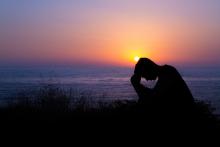
“If my people, which are called by my name, shall humble themselves, and pray, and seek my face, and turn from their wicked ways; then will I hear from heaven, and will forgive their sin, and will heal their land.” —2 Chronicles 7:14
Confession and repentance are messy and painful, and they don’t come natural to us. Our human heart is in a natural state of denial. Without an external agent, God, we are unable to recognize our prejudices, offenses, and sins.
In the previous text God speaks to God’s people, those whom God claims as God’s own. We belong to the Creator and to each other. That means that regardless of how we perceive others, and regardless of how others perceive us, bonds that can’t be broken tied us up. The relationship we share is held together by the very identity of God. Mother Teresa reminded us “we have forgotten that we belong to each other — that man, that woman, that child is my brother or my sister.”
It is necessary that we understand that this belonging is mutual. I belong to you and you belong to me. There is no escape; we can’t change this relationship. It is only when I recognize others and welcome them into my life that the fullness of God’s identity in me is revealed. No one is an outsider. No one should be left out at the door of my heart; to do so is to deny my God-given identity.
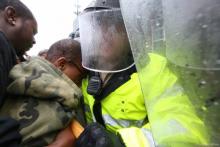
“Get the word out. Teach all these things. And don’t let anyone put you down because you’re young. Teach believers with your life: by word, by demeanor, by love, by faith, by integrity.” –1 Timothy 4:12 (The Message)
In our recent book Forgive Us: Confessions of a Compromised Faith, Mae Cannon, Lisa Sharon Harper, Soong-Chan Rah, and I call the American church to a posture of repentance due to all the times we have not only been on the wrong side of history, but on the wrong side of God.
As an organizer and director of the AMOS Project in Cincinnati, I’ve discovered that a humble spirit of repentance is critical to powerful work around racial and economic justice. There can be a strong temptation to replay colonialism by having all the answers and believing we are God’s gift to the oppressed. We white evangelicals are particularly susceptible to this arrogant path. Humility and a repentant spirit are key to a healthy engagement and partnership in our work.







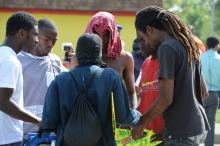
If, as many of the religions of the world affirm, there is a profound equality of dignity and worth between all human beings by virtue of their humanity alone, then what are we to make of a nation and its citizens who allow an entire group of people, a people once brutally enslaved and still actively oppressed, to continue to be stigmatized in ways that implicitly affirm their inferiority as a group and so allow too many of them to experience the devastating consequences of entrenched racial inequality? That nation and its citizens would stand accused of the greatest of injustices. That nation and its citizens would have a divine duty to end that injustice. The United States and we its citizens stand so accused today. Until we understand the imperative to eliminate racial inequality as an obligation grounded in ultimate reality, we will fail to understand the magnitude of our responsibility.
Whether the issue is wealth, health, incarceration, employment, or education, blacks as a group experience significantly disproportionate negative outcomes compared to whites. What accounts for this difference? Only two options are available. Significant racial inequality over time is explained either by forces external to the lives of black individuals (e.g., economic, legal, and social forces), or by the aggregate consequences of choices made by these individuals. Unless one concludes that racial inequality is entirely explained by forces external to the lives of black people, one is forced to conclude that there is something inferior about blacks as a group that causes them persistently to make more bad life choices than whites as a group.
At this point, some will object that some black people do indeed make bad choices that lead to bad outcomes. But so do some white people. The question is what accounts for the differences in the proportion of bad outcomes?

Just two days ago at this hour, I was in the midst of an 11-mile journey for John Crawford. Led by young people of color, 85 of us marched through suburban and rural Greene County, Ohio from the Beavercreak Wal-Mart, the site of John Crawford’s death at the hands of police, to Xenia, Ohio, where the special grand jury would consider an indictment of the officers. What was Crawford’s “crime?” Carrying a toy gun around Wal-Mart while talking on a cell phone.
During the march, there were moments when I felt like we had gone back in time, to days of struggle in the rural South, pushing for black lives to matter in this country, from accommodations to the ballot box. Things were different, I thought. Fifty years ago, marchers had a legitimate fear of sniper fire. Buses carrying freedom riders were attacked and firebombed with impunity. Surely times have changed.
Today the grand jury in Ohio announced there will be no indictment of the officers. (The Justice Department later announced it is launching an investigation into the shooting.) The Wal-Mart surveillance video is now public, and it reveals how quickly Crawford’s life was taken. The special prosecutor, in quotes about the case, seems to have not pushed very hard for an indictment. So another black life is lost under absurd circumstances, and the system communicates yet again that black lives don’t matter.

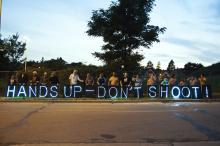
Dr. King said: a “riot is the language of the unheard.”
What happens when folks do not feel like their voices are being heard?
They shout louder.
Rioting is what almost happened in Ferguson, and all of us who live in fragile neighborhoods with a backdrop of deep racial injustice need to pay attention.
In Ferguson, a close-knit community was devastated by yet another injustice. They wanted to be heard. But as peaceful marches began, they were met with unprecedented force.
Tears were met with teargas.
It was as if authorities were putting their hands up over their ears. So the people shouted louder – and the world began to pay attention.
At a fragile moment when emotions were running high, the people of Ferguson had to choose between rioting and nonviolent direct action in the streets. A very small group (many of them arguably out-of-state activists) resorted to some forms of property damage. And it caught the media’s attention.
Some might say it hijacked the headlines.
But that is not how I will remember Ferguson.
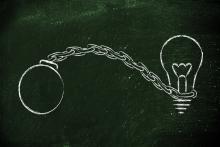
September is often associated with the celebratory beginning of a new school year. It’s a time of hopeful anticipation for students, parents, and teachers filled with new school supplies and new friends.
In many communities, however, the beginning of the school year is a cause for concern and anxiety.
Instead of hallways filled with artwork and sports trophies, many students will walk into prison-like environments complete with metal detectors, and the presence of police and armed security officers. These officers have more than a chilling effect. They also have the authority to arrest students, often for minor misbehavior. When you couple the harshness of the school environment with zero tolerance policies that criminalize children’s non-violent infractions like being late to class, violating a dress code, or even chewing gum, one can begin to see the school discipline crisis.
The patchwork of overly harsh disciplinary policies that funnel children directly from the classroom to the juvenile justice system is referred to as the school-to-prison pipeline. In schools across America, students, especially students of color, who should be sent to the guidance counselor to find out what’s really wrong end up at the police station. These policies are expensive, unjust, and ineffective. They also lower academic achievement, lead to dropout, and do little to make schools safer.
Even more troubling, we find that the rules are different for children of color, who are punished more often and more severely than white students for the same offenses. These students are not behaving any worse than others, but they are disciplined at a higher rate because of racial bias. These same patterns we see in schools are also playing out in the criminal justice system: African Americans are imprisoned at higher rates and given more severe sentences than whites for the same offenses.
The school-to-prison pipeline is a moral and racial justice crisis. Solving the problem will require an all-hands-on-deck solution.